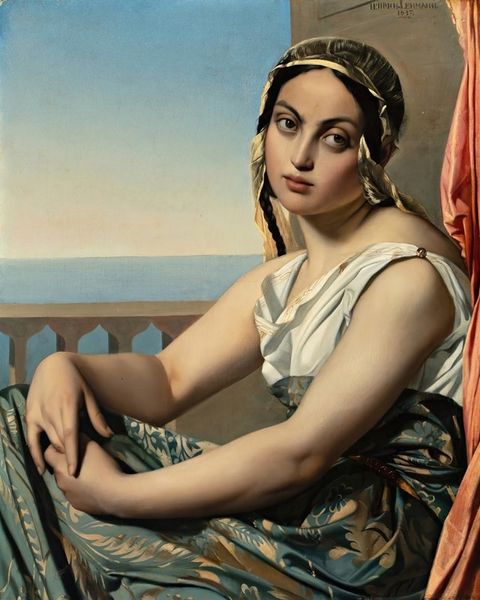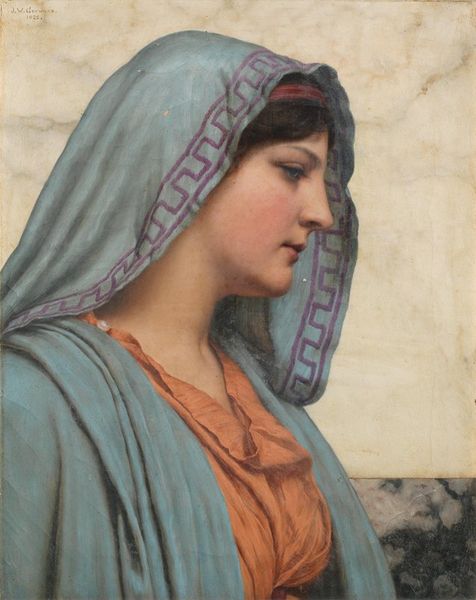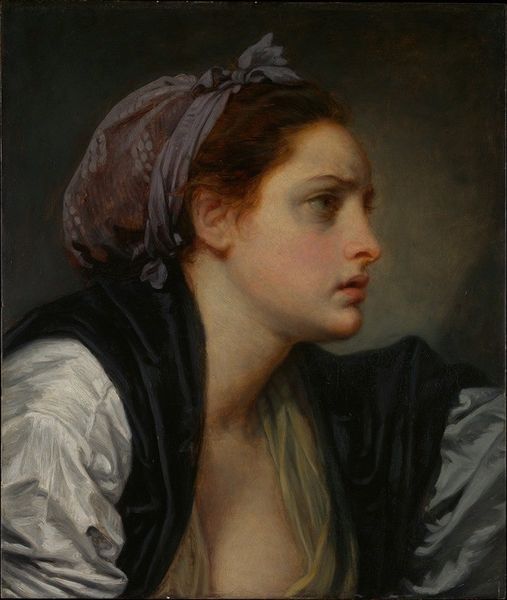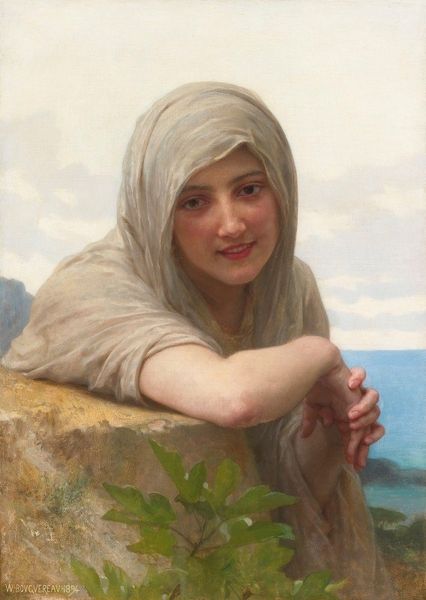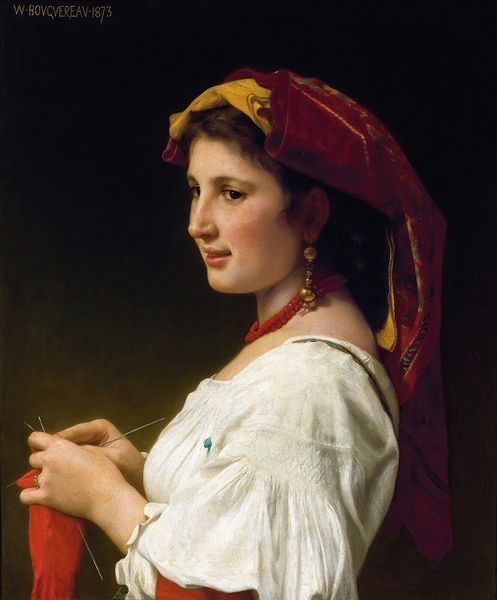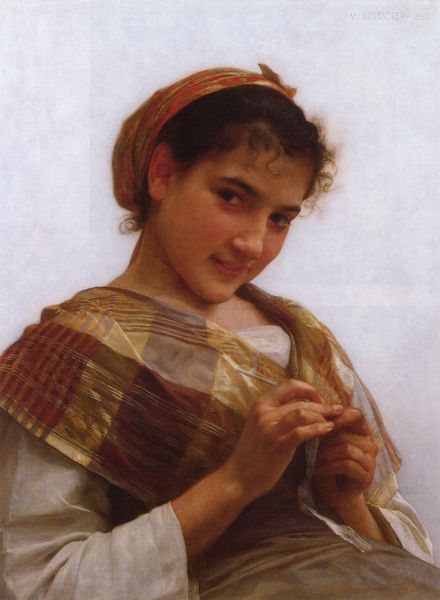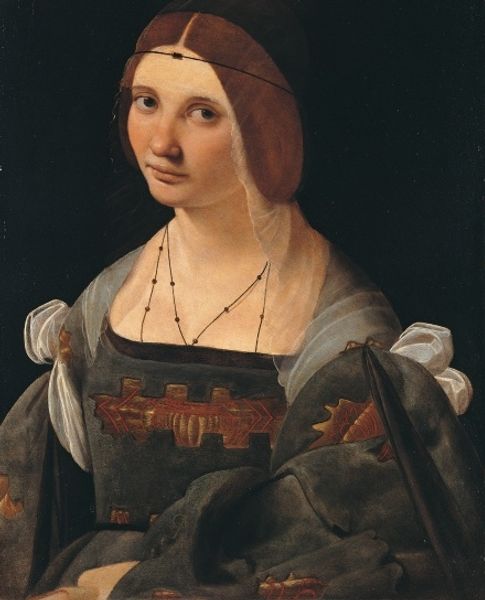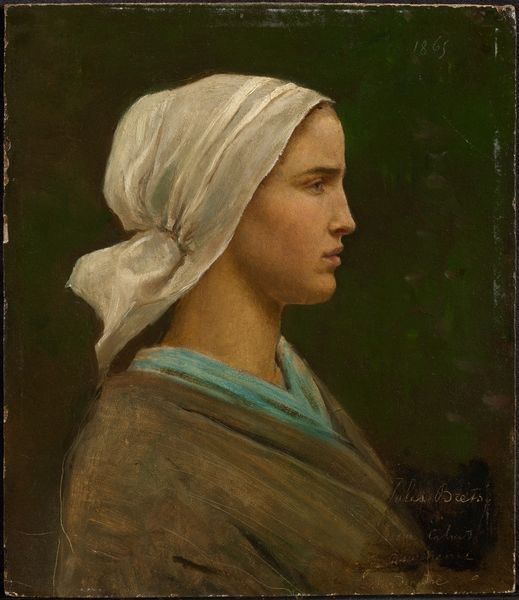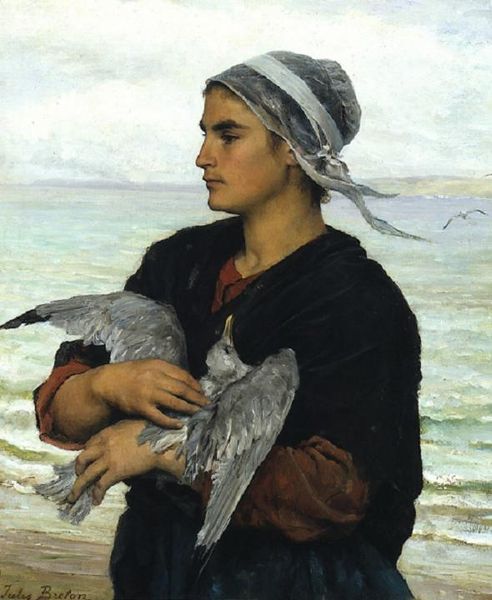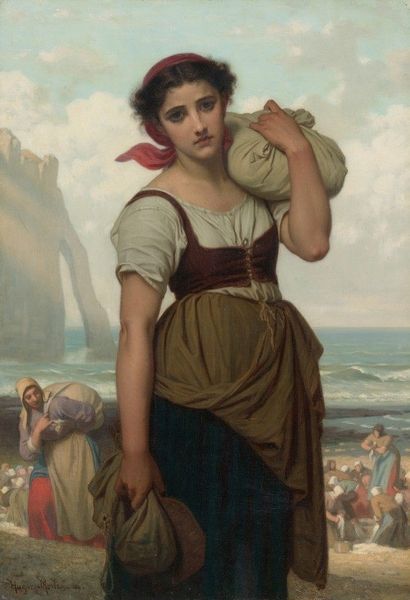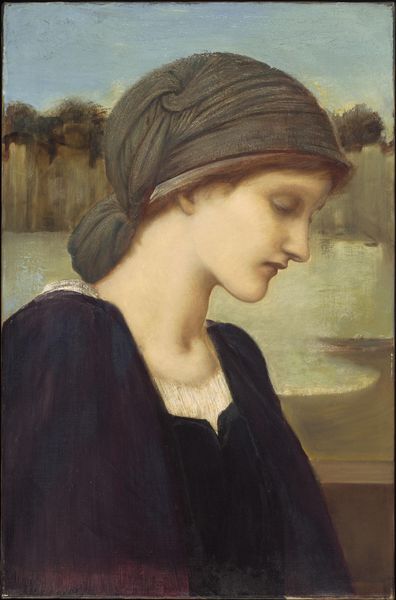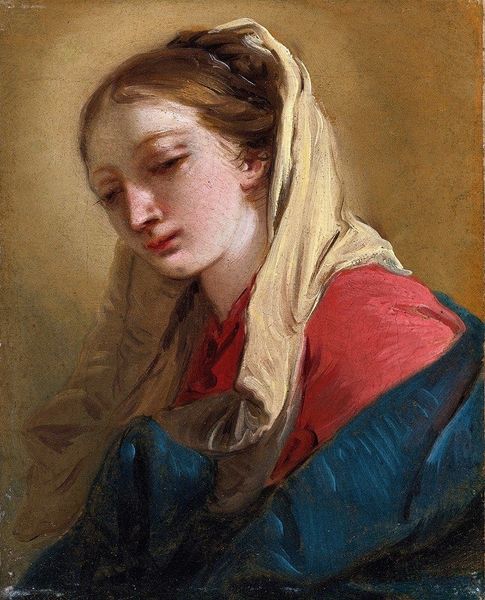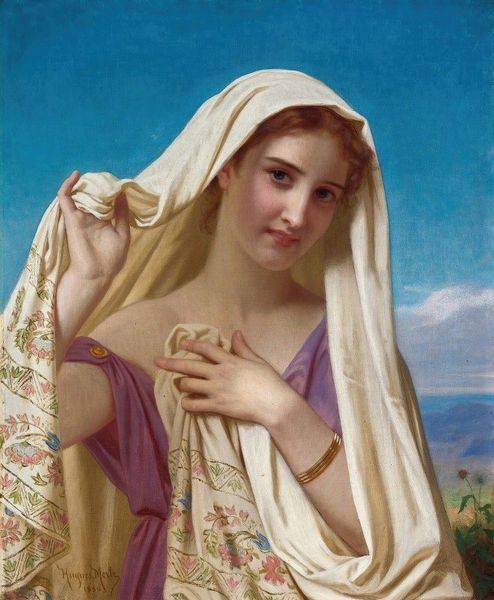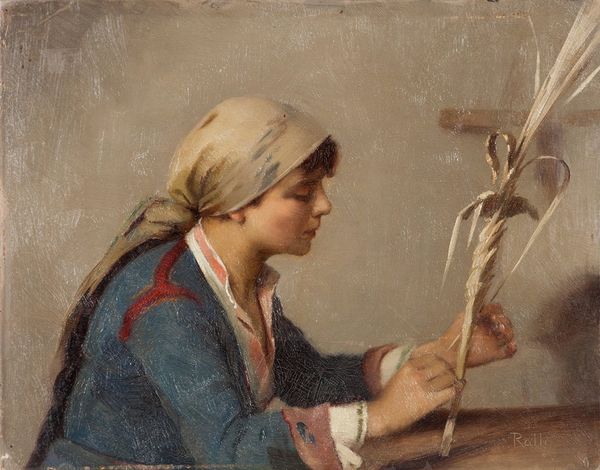
Copyright: Public Domain: Artvee
Curator: Here we have "Tricoteuse Bretonne" by William Bouguereau, an oil painting dating back to 1871. Editor: There's a profound sense of quiet concentration radiating from this painting. The softness of the colors almost lulls you. What do you see, looking at it from a materialist's lens? Curator: First and foremost, consider Bouguereau's process: he built up layers of paint with meticulous precision, obscuring any trace of the artist's hand. This speaks volumes about academic art and the expectations surrounding skillful execution and the role of the art object within bourgeois culture. Editor: Absolutely. And beyond skill, I see longing. Her gaze is fixed on something beyond the canvas. Maybe it's not just about technique but about evoking a deep-seated feeling tied to labor, domesticity and escape. Curator: Indeed. The painting situates a young woman engaging in domestic labor within a broader social context. Knitting was, and still is, a common means for women to contribute economically, connecting individual effort to a wider market system and reinforcing gendered divisions of labor. How does that influence the piece? Editor: It certainly does! While it acknowledges labor, it romanticizes it too. Look at the idealized beauty of her face, the dreamy background—it transforms the harsh reality of work into something serene and dignified, blurring the lines between realism and idealism. You can get lost between romanticizing work and getting something practical done. Curator: Exactly, and in thinking about it now, the raw materials have probably long since returned to the Earth, repurposed, used for comfort. As someone examining this scene with romantic eyes, how does that land? Editor: It hits you at different stages in life differently, depending on your situation. Perhaps, there is a quiet form of protest buried here, subtly questioning the accepted role for a woman during the artist’s lifetime? Either way, an ordinary thing, elevated and romanticized. I love it. Curator: Indeed, "Tricoteuse Bretonne" encourages us to reconsider how beauty, skill, labor and even quiet rebellion might co-exist on a single canvas and to reflect on art production and commodification.
Comments
No comments
Be the first to comment and join the conversation on the ultimate creative platform.
